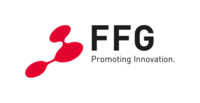Smart operation of aquaponics systems on the basis of IoT technologies.
Background
The growing global population, climate change, and the ensuing resource and food constraints pose huge challenges to humanity. One approach that contributes to overcoming these difficulties are aquaponics systems. Aquaponics systems enable local production of fish and vegetables in controlled environments and have numerous advantages over conventional production methods: Chemical fertilizers are not necessary, land use is lower, pesticides can be applied in smaller quantities, and resources be used more carefully (up to 97% less water consumption). Fish farming requires no pharmaceuticals, and methane emissions and water contamination are relatively minimal.
Project Content
Operating an aquaponics system successfully requires know-how and experience, which newcomers to the business have to acquire first. However, research looking into how contemporary IoT (Internet of Things) technology can be employed profitably in a circular economy enables newcomers to take a short-cut. The current project expands on such research, but goes beyond simply optimizing processes with IoT applications. It does not only aim for using recyclables more effectively and efficiently, but also for constructing self-sufficient systems on the basis of renewable energies. Moreover, participant networks for exchanging IoT data are being formed. With the help of these networks, experience gaps are closed, distributed production is facilitated, optimizations can be achieved and as a result the environmental impact is reduced. In addition, the advantages of such networks become clearly tangible and their underlying ideas are advertised. A major scientific contribution of the project is to determine how well proven parameters of the circular economy can be applied to aquaponics systems.
Goals
The EdeN project intends to achieve the following goals:
- Smart operation of aquaponics systems (through the use of IoT technologies e.g.).
- Cascadic use of valuable materials (i.e., reusing material at different stages).
- Producing food in a transparent and sustainable manner.
- Better information transfer allowing newcomers to close their experience gaps more quickly.
- Experimental evaluation of the concepts developed.
Results
The EdeN project provides a modular, highly autonomous system for aquaponics systems that responds to events appropriately and reliably. The system allows for software and hardware heterogeneity, as well as data interchange across multiple users. The interchange of data and knowledge is a key component of EdeN and aids in giving a broad audience access to the know-how required for the intelligent production and operation of an aquaponic system. Transparency, traceability, and sustainability of food supply chains are aspects we give a great deal of attention as they are of vital importance in fighting food fraud, information manipulation, food contamination, and food waste. Also, EdeN's technological model enables small food producers to store and make available a wide range of IoT-based product data, process data, and ecological data.
- Research Studios Austria FG
- AIT Austrian Institute of Technology
- BEIA Consult International [Romania]
- AF AndersFarm


